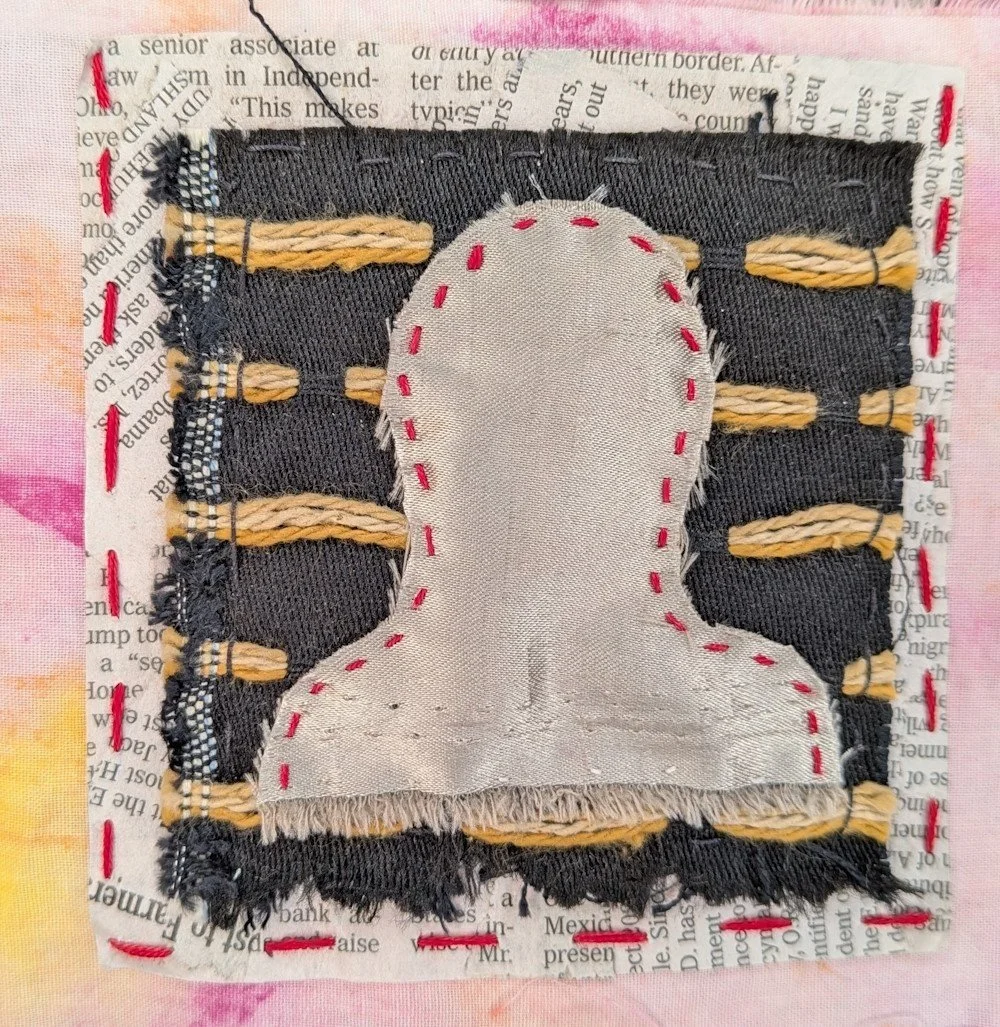is Miscarriage illegal?
Story of Selena Chandler-Scott, Vol. 1
Of course it is not illegal to have a miscarriage. But, increasingly, women like Selena Chandler-Scott (and Mallori Patrice Scott in Vol. 2 and Brittany Watts in Vol. 4) who miscarry have been suspected of and sometimes charged with crimes like “abuse of a corpse,” “concealing a dead body,” or “abandoning a dead body.” (As I say in Selena’s story, there are not, yet, any laws concerning how women must dispose of miscarriages, although there are regulations for how medical facilities must do so.) In this square, I wanted to convey my anger at how Selena was humiliated with a published mugshot during this process. The image of the mugshot fortuitously evokes the human profile that appears on shooting targets; women are indeed being targeted and, unsurprisingly, in most of the cases I know of, the women are Black. The treatment of women like Selena stems from and contributes to a climate of distrust and suspicion that organizations like Pregnancy Justice refer to as the “criminalization of pregnancy.” They report that the first year after the Dobbs decision featured the “highest number of pregnancy-related prosecutions documented in a single year.” Ultimately, the harassment of these women also stokes arguments for “fetal personhood” and “equal protection” laws because they encourage viewing fetuses as persons, which is what some anti-abortion activists have as their goal. “Fetal personhood” and “equal protection” laws would grant fetuses (even embryos, potentially) the same rights and protections as any person, thus paving the way for charging women who terminate pregnancies with homicide (this timeline provides an overview of U.S. “fetal personhood” law beginning in 1884). In 2025, “fetal personhood” or “equal protection” bills were introduced in at least 37 bills in 19 states.
